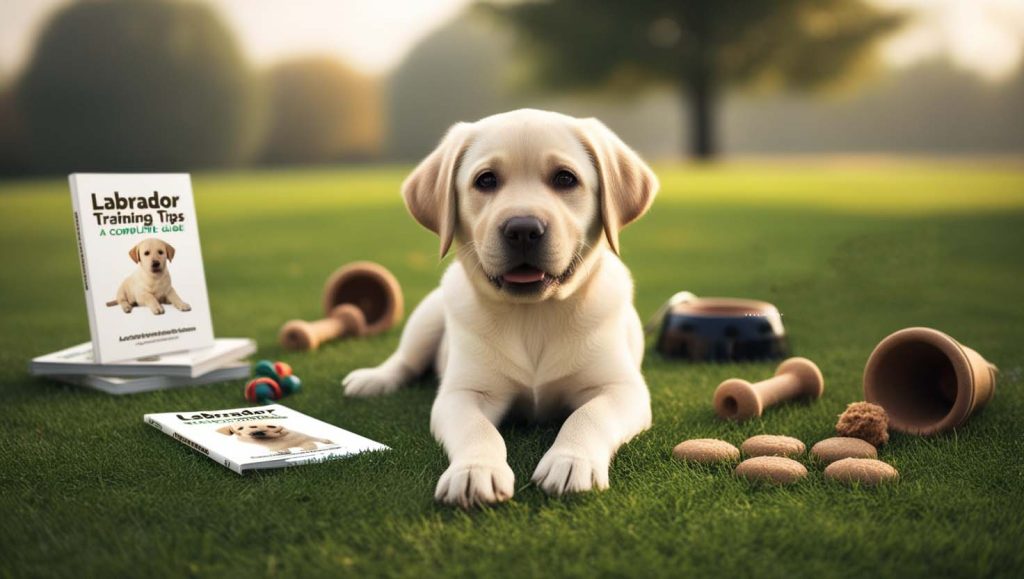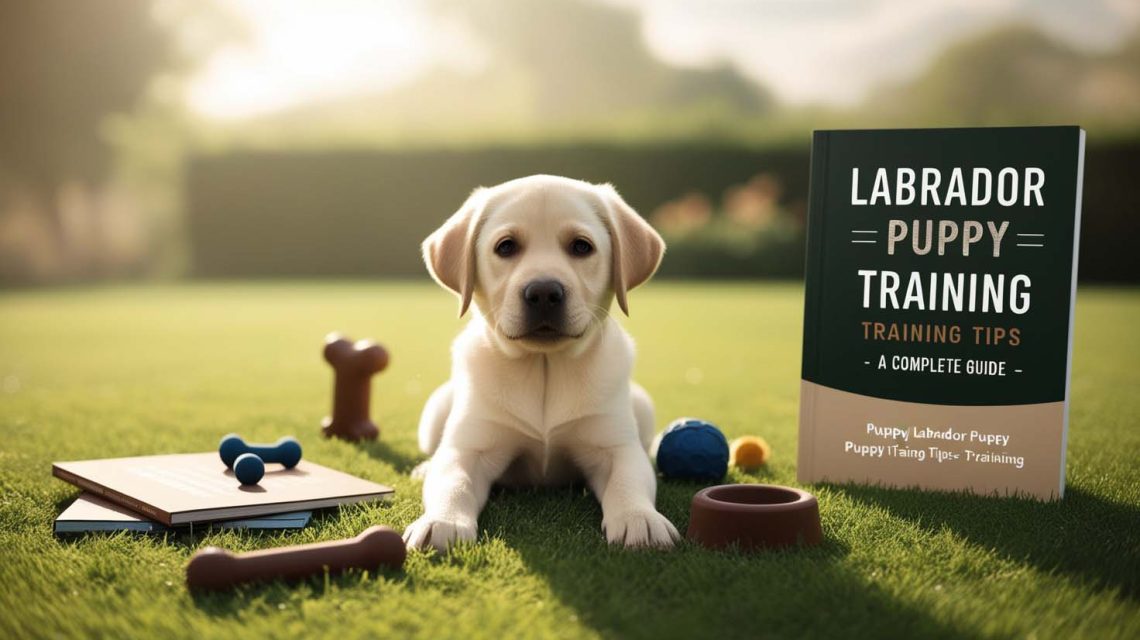Labradors are known for their friendly nature, intelligence, and eagerness to please, making them one of the most popular dog breeds worldwide. However, without proper training, their energy and enthusiasm can lead to challenges. Starting early with the right training techniques is essential for raising a well-behaved Labrador.
In this guide, we’ll explore Labrador puppy training tips to help you establish a strong bond and nurture positive behaviors. From basic obedience to socialization, you’ll find actionable advice to make training enjoyable for both you and your puppy.
Why Training Is Crucial for Labrador Puppies
Labrador puppies are intelligent and full of energy, but they require guidance to channel their enthusiasm into positive actions. Training is not just about teaching commands; it’s about building trust and ensuring your Labrador grows into a happy and confident dog.
Benefits of Early Training
- Builds Good Habits: Starting early prevents bad behaviors like excessive barking or chewing.
- Strengthens Bond: Training fosters a deeper connection between you and your puppy.
- Ensures Safety: Commands like “sit” and “stay” can keep your puppy safe in potentially dangerous situations.
Essential Labrador Puppy Training Tips
1. Start with Basic Commands
Teaching basic commands is the foundation of all training. Labrador puppies are quick learners, making it easy to start with commands like “sit,” “stay,” and “come.”
- How to Teach ‘Sit’:
- Hold a treat close to your puppy’s nose and slowly move it upward.
- As your Labrador looks up, their bottom will naturally lower.
- Say “sit” as they sit down and reward them immediately.
- Why This Matters: These basic commands improve communication and ensure your puppy understands expectations.
2. Use Positive Reinforcement
Labradors thrive on encouragement. Positive reinforcement involves rewarding good behavior with treats, praise, or playtime.
- Tips for Success:
- Reward immediately after the desired behavior.
- Keep treats small to avoid overfeeding.
- What to Avoid: Punishments can create fear and damage trust. Focus on reinforcing positive actions instead.
3. Be Consistent
Consistency is key to successful training. Use the same words, tone, and gestures for commands so your Labrador doesn’t get confused.
- Example: If you’re teaching “down,” avoid switching between “down” and “lie down.”
- Family Involvement: Ensure everyone in the household follows the same training rules and uses consistent cues.
Potty Training Tips for Labrador Puppies
House-training a Labrador puppy is one of the first challenges new owners face. With patience and a consistent routine, your puppy will quickly learn where to do their business.
1. Establish a Schedule
Puppies need frequent potty breaks. Take your Labrador outside after meals, naps, and play sessions.
- Tip: Use a consistent command like “go potty” to help your puppy associate the phrase with the action.
2. Supervise Indoors
Until your puppy is fully house-trained, keep a close eye on them indoors. Look for signs like sniffing or circling, which indicate they need to go outside.
- Use a Crate: A properly sized crate can aid in potty training by encouraging your puppy to hold it until they are taken outside.
3. Reward Success
When your Labrador goes potty in the right place, reward them immediately with praise and treats. This reinforces the behavior.

Socialization Tips for Labrador Puppies
Labradors are naturally friendly, but early socialization is crucial to help them become well-adjusted adults. Exposing your puppy to various people, environments, and other animals reduces fear and builds confidence.
1. Introduce New Experiences Gradually
Take your Labrador to different places, like parks, busy streets, or pet-friendly stores. Start with quiet environments and gradually increase the level of activity.
- Tip: Use treats to reward calm behavior during new experiences.
2. Organize Puppy Playdates
Allow your Labrador to interact with other puppies in a controlled environment. This teaches them how to play appropriately and read social cues.
3. Expose Them to Sounds and Textures
Introduce your Labrador to household noises, like vacuum cleaners or doorbells, and different surfaces, such as grass or tile floors. Early exposure prevents anxiety later.
Leash Training Tips for Labrador Puppies
Labradors are energetic and often eager to explore, making leash training essential for safe walks.
1. Start Indoors
Begin by letting your Labrador wear a lightweight leash indoors to get them used to the sensation.
2. Teach Loose-Leash Walking
Encourage your puppy to walk beside you rather than pulling ahead. Reward them when they stay by your side.
- Tip: Stop walking if your puppy pulls, and resume only when they calm down.
3. Use Short Training Sessions
Keep leash training sessions brief and fun to maintain your Labrador’s focus.
Avoiding Common Labrador Puppy Training Mistakes
Even experienced dog owners can make mistakes during training. Here’s what to watch out for:
- Inconsistent Commands: Switching commands confuses your puppy.
- Long Training Sessions: Puppies have short attention spans, so limit sessions to 5–10 minutes.
- Neglecting Socialization: Lack of exposure to new experiences can lead to fearfulness later.
FAQs About Labrador Puppy Training Tips
When should I start training my Labrador puppy?
- Begin training as soon as you bring your puppy home, typically around 8 weeks of age.
How long does it take to train a Labrador puppy?
- Basic training can take a few weeks, but consistency and reinforcement are key for lasting results.
What treats should I use for training?
- Use small, soft treats that are easy for your Labrador to eat quickly. High-value treats like chicken work well.
How do I stop my Labrador from biting?
- Redirect biting to appropriate chew toys and reward gentle play. Avoid encouraging rough play.
Can I train my Labrador without professional help?
- Yes, Labradors are highly trainable, but professional trainers can provide additional guidance if needed.


